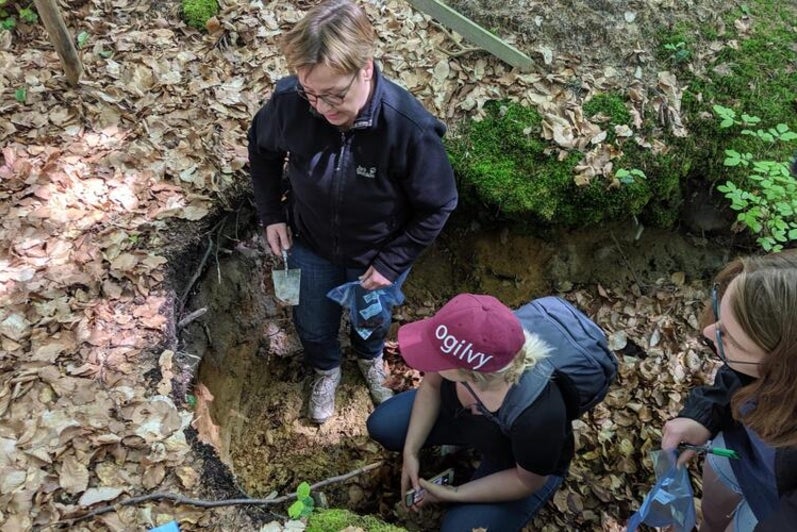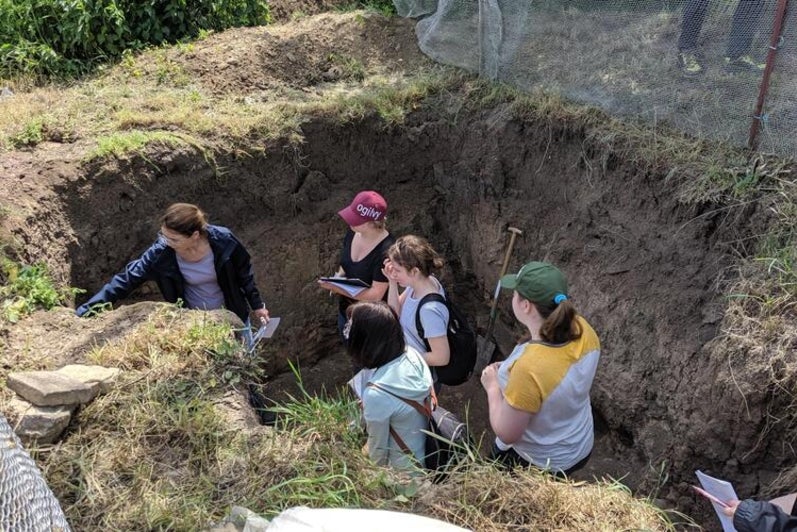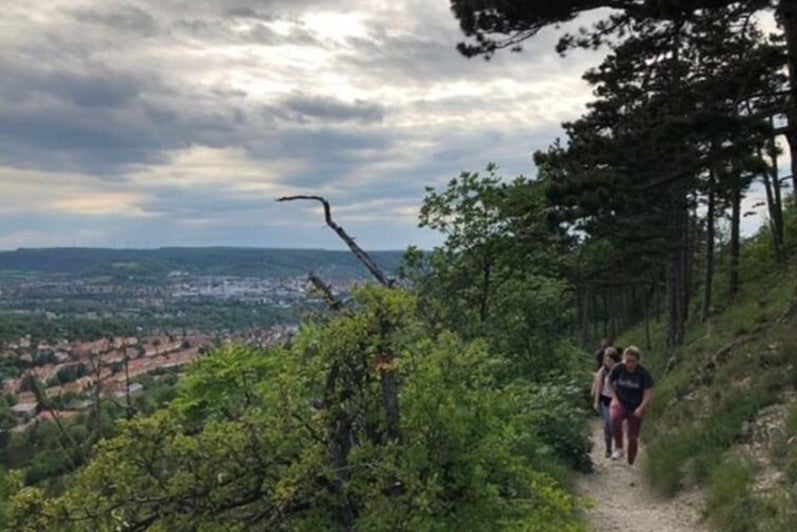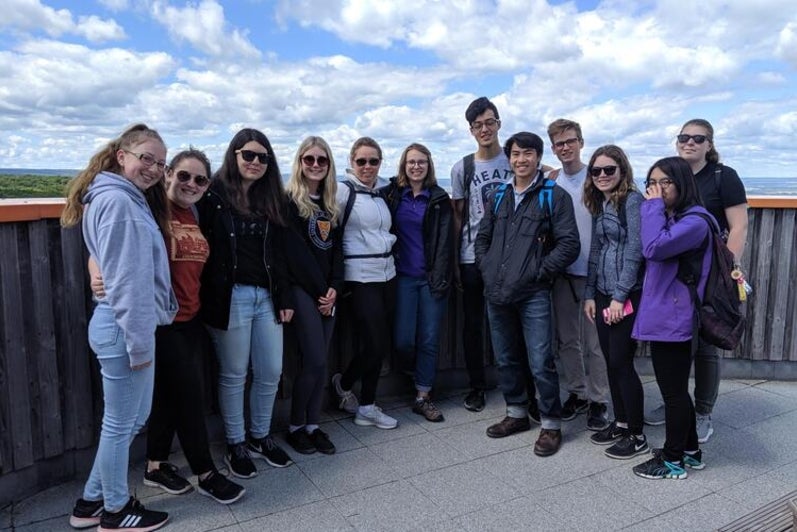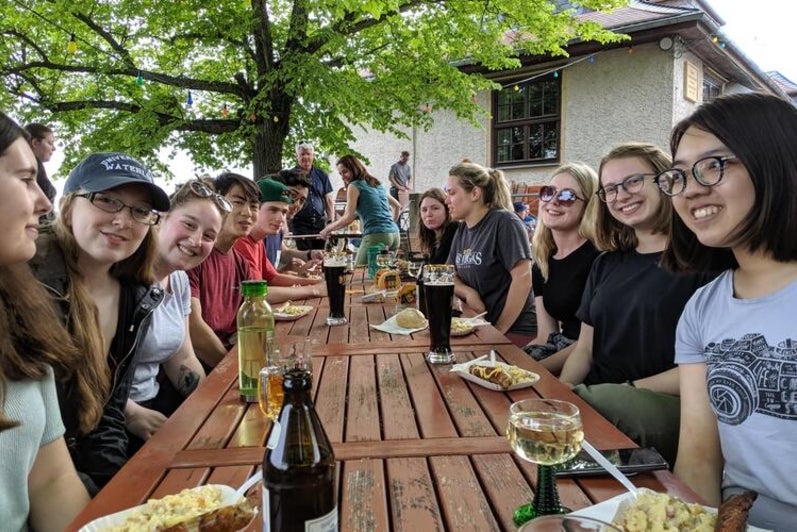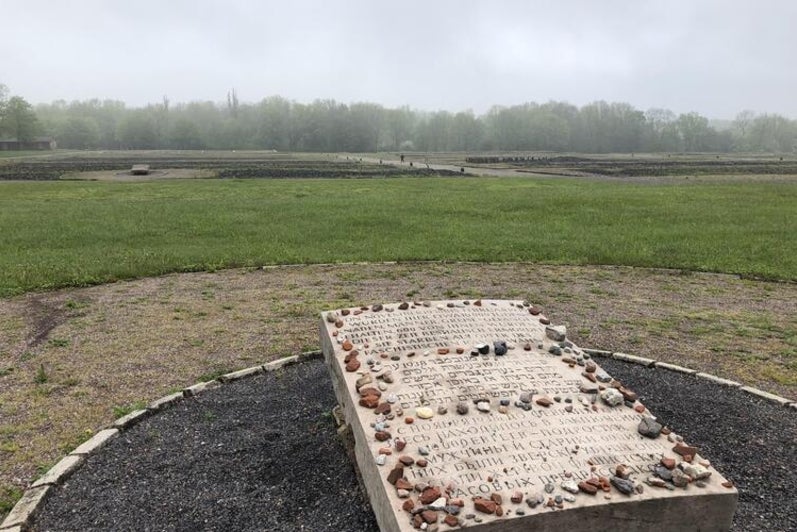Post-Socialist Southern East Germany

2019 participants in front of a topographical map of Germany
Institutional Association: University of Waterloo
Director: Prof. Johanna Wandel
Program Description:The course looks at Southern East Germany through four main areas. First, it starts with the economy and society, with an intense day of understanding why the Second World War and its aftermath have left such a strong legacy here. We visit the Buchenwald concentration camp memorial and the German-German border museum to understand some of the reasons for the partition of Germany in the aftermath of World War II, and what this meant for everyday life in socialist East Germany, the GDR. From there, we explore the legacy of the GDR years in urban evolution, including cities that have stagnated and rapidly growing cities like Leipzig. We delve into the physical geography of the Thuringian Basin, the Thuringian Forest and Kyffhäuser Range, including learning about Central Europe’s ancient beech forests, loess plateaus and karst topography. We examine what climate change means for the forests, fields and settlements of the region, and how Germany is approaching climate change mitigation and adaptation. We pull these concepts together using interactive geo-spatial assignments. All of our teaching is supported by guest lecturers, with walking tours and lectures from German professors (facilitated by a partnership with Friedrich Schiller Universität Jena) and climate change, soil science and other experts. A typical day has us examining soil pits in a forested region and considering the way these soils shaped and were shaped by the surrounding biogeography, and then moving to a soil and agriculture research station in the Thuringian Basin, or, on another day, teaming up with German students and mapping the condition of urban infrastructure in a city like Zeitz, which has experienced incredible population loss since reunification.
Beyond the formal learning outcomes, an explicit goal of the course is to foster cultural interaction and friendships for students. This got started with a barbecue hosted by the Geography department at FSU Jena – when the profs went home, the German-Canadian student collaboration was just getting started!
How does this program benefit students?
Professors are bound to go on about the learning outcomes and how this relates to curriculum, and that is, of course, a benefit of the program. Instead here is how Kate, one of the students who participated, would answer this question:
“This program benefits students by giving them the opportunity to study abroad for a shorter period of time than entire semester and with a group of students and faculty from their home school… Students have the opportunity to work closely with professors in a much smaller group than other university courses while also developing deep connections with peers and making unique memories that last a lifetime. The courses and content are easily specialized towards students’ personal interests whether it be human geography, physical geography or GIS to allow them to get as much out of the program as possible.”
What have students enjoyed most about the program?
Again I will let the students speak:
Kate: “My favourite part of the program was connecting with German students and learning about their region's geography in a small group setting and connecting with professors outside of the classroom!”
Alex: “My favourite part was seeing what it was like to be in a similar program in a completely different culture and part of the world!”
Megan: “I thought it was really interesting to be in a different country and see what they are doing to work towards fighting climate change. I also enjoyed learning about the German education system and then seeing it in action.”
What's your favourite part of this program?
First, the student perspective from Kate:
“My favourite part about this program was the close connections you make with professors and peers while away learning in a foreign country. Having the opportunity to work in a small group size like that allowed us to ask questions and get as much out of the experience as possible. Spending all your days and nights with a small group of people allows you to become close in a way that isn’t usually possible on campus, while also getting to experience a whole new culture, history and geography that is incredibly rich and interesting.”
My own favourites are not all that different – my background is in West Germany, so the year we spent preparing this course opened my eyes to a period in German history and society of which I had a very stereotypical view. Beyond that, my absolute favourite part was spending time with our students in the smaller group setting, and getting to know them outside the classroom. There really is no better way to get a sense of who our students are.
A lot of universities in Canada are promoting interdisciplinary learning. In what ways does your program support that goal?Geography is, in many ways, a discipline that only exists as a whole by drawing on different ways of learning and knowing. Our love of space and place ties us together, but our collaborations and cross-appointments are wide-ranging. Field courses like this give us the opportunity to bring all these different disciplinary approaches together – the course was co-taught by a climate adaptation scholar and a remote sensor. We took turns taking the lead on the topics that most closely aligned with our backgrounds, but as geographers, we were well-equipped to contribute to the parts of the course that don’t necessarily fall within our own research areas. All the guest experts certainly didn’t hurt either!
Do you have any recommendations for other institutions looking to create a similar program?From the faculty set-up and logistics perspective, there is no substitute for strong local connections. The impetus for this course came from Dr. Alexander Brenning, Dean of Geosciences at FSU Jena – but also a former University of Waterloo Geography and Environmental Management faculty member. This existing relationship was the seed that started the field course, and we benefitted from some existing European Union Erasmus+ funding initiatives which physically put us in Jena in 2018. These connections also provided us with an opportunity to join with local partners. Being on-site the year before – and able to speak the language – certainly helped with identifying suitable activities and locations but also made it possible to keep costs down by seeking out smaller, independent tourism operators who could work with our needs with minimal overhead.
In short, the faculty-level advice is, go where you have connections, and spend the time to set it up.
But to hear the student perspective, I again turn to Kate:
“Other institutions looking to create similar programs should be sure to incorporate the mixed style of learning by combining in-class lecture content with field trips and experiences with experts on the subject. Giving students enough free time so they are not constantly on the move and working is important to allow for adequate rest help students to absorb and connect with the course content while also enjoying themselves. Making contact with each student to understand what other responsibilities they have that term (such as other courses they are missing back home) is important to help students not fall behind in their programs. Checking in with students throughout the course is also important to get feedback and make changes as necessary to ensure students are feeling supported, enjoying themselves and keeping up.”
Click below to scroll through pictures of the 2019 trip provided by Prof. Wandel:
